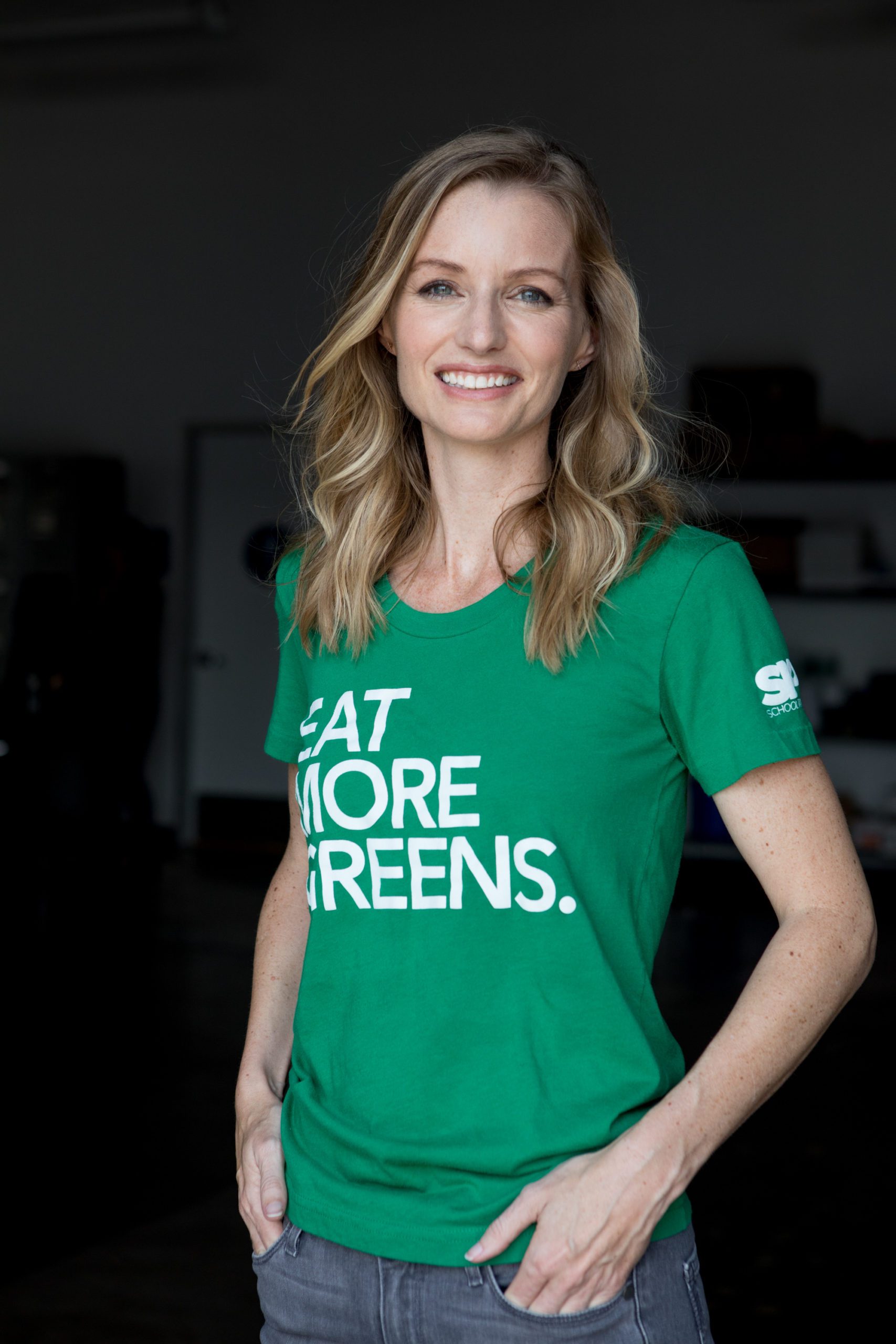Emily Burson, RD, Shares Tips for Improving Children’s Health, One Meal at a Time

Emily Burson is a Registered Dietitian and the founder of School Nutrition Plus (SNP), a school foodservice and catering program. Prior to founding SNP, Emily was a Food Service Director, and wanted to be able to provide clients with one-on-one attention and incorporate wellness. SNP provides healthy, made-from-scratch meals to over 20,000 students each day, and hosts wellness activities, encouraging kids to try more fruits and vegetables and learn about the food they are eating. A favorite activity is the “Alphabet Produce Train” – a 6-foot replica of a train engine and “cars” where kids are encouraged to try fruits and vegetables from every letter of the alphabet.
We spoke with Emily about getting kids to try new foods, using Monday as a reset and the importance of getting kids and families cooking and eating together each week.
Check out SNP’s recipe for Quinoa Cranberry-Almond Granola, one of Emily’s favorite fun snacks and a great recipe for kids and parents to make together!
Why do you think it’s important for children to be involved in cooking and preparing food?
Children don’t know where food comes from. To kids, processed foods, like chicken nuggets or French fries, have become the representation of chicken and potatoes. Showing them what food looks like from a raw state, and then allowing them to participate in preparation and cooking, creates an investment that results in an interest in the final product.
How do you think using Monday as a “reset” and starting each week cooking and eating a meal together can be beneficial for families?
Families are so busy during the weekends with sports, birthday parties, and other activities that it often prevents them from sitting down for a meal together. Using Monday as a reset day makes sense and can keep the wheels from coming off in busy families. With family members going in all different directions, the act of coming together for cooking and eating a meal facilitates conversation, maintains and strengthens relationships, and is a time for adults to model healthy eating.
What is your approach to picky eaters to make sure they are eating nutritious meals?
In schools, when we expose students to new foods, we menu the item more than once even if it’s met with resistance the first time. We encourage school staff and our servers to engage with the kids as they try new items because they’re more likely to accept it. Chef Louis Martinez, Executive Sous Chef at SNP, once introduced a Quinoa Pomegranate Salad to a school and many students had no idea what either ingredient was. They thought it was some type of rice with raisins and he had to walk around and explain in order for them to try it. Lunchtime is part of education and we can’t expect to produce healthy eaters by leaving kids on their own to try new foods (or taking the easy way out by serving junk!). At home, involving kids in shopping and cooking makes them much more likely to try new foods, especially veggies.
What advice do you have for parents who say they just can’t find the time to cook with their kids?
Helping kids develop an awareness of nutritious eating and the importance of trying new foods are lessons that if developed young, can result in healthy habits for life. We should be placing as much importance on food education as we do on showing kids how to brush their teeth, pick out clothes, speak politely, and other developmental and life skills.
What are some tips you have for families during the busy back-to-school season to start each week cooking and eating meals together?
It’s about planning ahead. One tip is to sit down as a family and plan a weekly menu. Let the kids help prepare ingredient and shopping lists, and take them to the grocery store if possible. It’s also helpful to have a pantry stocked with staples like olive oil, rice, pastas, and other grains. Frozen veggies can be just as healthy as fresh in some cases, so keep that freezer full!
